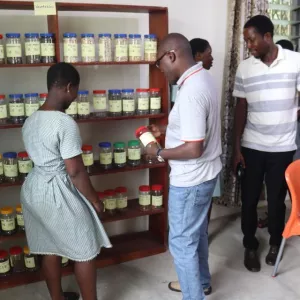Farmers as Guardians: Conserving Ghana's Minor Crops
Ghana’s rich agrobiodiversity is increasingly threatened by the decreasing use of traditional minor crops, which are becoming ‘neglect and underutilization species’. These crops – essential for rural livelihoods and food security – face genetic erosion and a lack of conservation. To address this, a pilot project has been launched to establish a community see bank in Ghana, co-led by the

Farmers as Guardians: Conserving Ghana's Minor Crops
Ghana’s rich agrobiodiversity is increasingly threatened by the decreasing use of traditional minor crops, which are becoming ‘neglect and underutilization species’. These crops – essential for rural livelihoods and food security – face genetic erosion and a lack of conservation.
To address this, a pilot project has been launched to establish a community see bank in Ghana, co-led by the NUS Network of Ghana and the Alliance of Bioversity International and CIAT, and supported by the Netherlands Embassy in Ghana. The initiative aims to preserve local crop varieties, promote farmer cooperation, and ensure the long-term sustainability of agricultural biodiversity.
The pilot community seedbank has been established in Adawso, where farmers are actively involved in managing and conserving seeds from their fields. The project also incorporates on-farm conservation of vegetatively propagated crops such as bananas.
By promoting community seedbanks and integrating on-farm conservation, Ghana can protect its agrobiodiversity and ensure the continued resilience of its agricultural systems.

